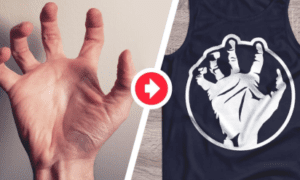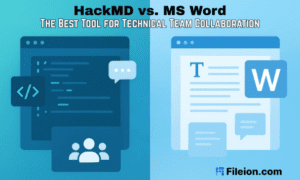In today’s fast-paced corporate world, collaboration, communication, and cohesion are more critical than ever. Whether you’re a startup looking to strengthen bonds among new hires or a large enterprise aiming to boost morale, corporate team building activities can transform your workforce into a unified, high-performing team. But with countless options available—from escape rooms and adventure parks to workshops and wellness retreats—how do you choose the best corporate team building event?
The answer lies in a strategic approach that aligns with your company’s objectives, team dynamics, and desired outcomes. In this blog, we’ll break it down into 3 actionable steps to help you choose the perfect team building experience for your organization.
Step 1: Define Your Purpose and Objectives
Before diving into planning or browsing through ideas, the first and most crucial step is to clarify your goals. Not all team building events are created equal—and not all serve the same purpose.
Ask Yourself: What Are We Trying to Achieve?
Here are a few common objectives companies aim for with corporate team building:
- Improved communication: Especially useful for cross-departmental teams or newly formed project groups.
- Conflict resolution: Helping teams work through past tensions or misunderstandings.
- Increased collaboration: Ideal for businesses where teamwork is essential to project completion.
- Boosted morale and motivation: Great for end-of-quarter celebrations or to bounce back from a challenging period.
- Onboarding integration: Helping new hires feel part of the company culture quickly.
- Leadership development: Encouraging emerging leaders to step up and showcase their skills.
- Creativity and innovation: Sparking fresh ideas through brainstorming and problem-solving activities.
✅ Pro Tip: Write down the top 2-3 goals you want to achieve through the event. This will serve as your decision-making compass moving forward.
Align With Company Values and Culture
Choosing an event that reflects your company culture strengthens the bond between employees and the organization. For example:
- A tech company might go for a hackathon-style challenge.
- A health and wellness brand may opt for a yoga retreat or hiking day.
- A sales-driven organization might benefit from competitive games or role-play scenarios.
🚫 Don’t Just Copy Trends: While zip-lining or escape rooms might be fun, they won’t yield the best results if they don’t support your objective or resonate with your team.
Step 2: Understand Your Team’s Needs and Preferences
A successful corporate team building event isn’t about what the HR department likes—it’s about what your team will engage with and benefit from.
Know Your Team’s Demographics
Understanding who makes up your team can help you avoid missteps and plan more inclusive activities.
- Age range: Physical intensity might not suit all age groups.
- Cultural diversity: Some activities might unintentionally make people uncomfortable.
- Personality types: Extroverts might enjoy improv workshops, while introverts could prefer problem-solving games.
- Physical capabilities: Not everyone may be comfortable with high-intensity activities like hiking or sports.
✅ Survey Your Team: A quick anonymous poll can reveal preferences and deal-breakers. Include options like indoor/outdoor, mental/physical, competitive/cooperative, etc.
Consider Team Size and Dynamics
Team size will determine the scope of your event. Large teams may need activities that can be done in parallel or in breakout groups. Smaller teams allow for more personalized and intimate settings.
Also, consider:
- How well the team already knows each other.
- Any interpersonal issues or cliques that need to be addressed.
- The natural leadership hierarchy.
💡 Example: If you have a fractured team, consider activities like conflict resolution workshops or cooperative games that require mutual support.
Step 3: Choose the Right Type of Event Based on Insights
With your objectives clear and your team’s profile in mind, you’re now ready to explore event formats. The best corporate team building event is one that checks all the boxes: aligns with goals, fits the team, and delivers measurable impact.
Popular Types of Corporate Team Building Events
Let’s explore a few categories with pros, cons, and best-use scenarios:
- Adventure-Based Activities
Examples: Obstacle courses, hiking, zip-lining, rock climbing, ropes courses.
- ✅ Great for: Building trust, breaking down barriers, energizing the team.
- ❌ Avoid if: Your team includes members with physical limitations or discomfort with risk.
Best for: Teams that need a morale boost or to shake things up after a stressful period.
- Problem-Solving Games
Examples: Escape rooms, scavenger hunts, murder mystery dinners, puzzle challenges.
- ✅ Great for: Enhancing communication and critical thinking.
- ❌ Avoid if: Your team gets easily frustrated under pressure or isn’t detail-oriented.
Best for: Cross-functional teams that need to improve collaboration and creative thinking.
- Workshops and Seminars
Examples: Leadership training, DEI (Diversity, Equity & Inclusion) sessions, personality typing (e.g., MBTI, DISC), conflict resolution.
- ✅ Great for: Professional development, introspection, strategic alignment.
- ❌ Avoid if: Your team needs to loosen up or is experiencing burnout.
Best for: Teams going through change management, promotions, or restructuring.
- Volunteer or Charity-Based Events
Examples: Food drives, environmental cleanups, fundraising events.
- ✅ Great for: Creating shared purpose and fostering gratitude.
- ❌ Avoid if: You need fast-paced or productivity-based outcomes.
Best for: Cultivating empathy and giving back to the community together.
- Creative Collaborations
Examples: Art classes, music jam sessions, cooking challenges, film-making.
- ✅ Great for: Sparking creativity, having fun, and breaking the routine.
- ❌ Avoid if: Your team struggles with open-ended tasks.
Best for: Marketing or creative departments, or as part of a company retreat.
Match Event Type to Your Objective
| Objective | Suggested Event Type |
| Improve Communication | Problem-solving games |
| Boost Morale | Adventure-based or creative events |
| Foster Leadership | Workshops, role-play challenges |
| Onboard New Employees | Icebreakers, group scavenger hunts |
| Encourage Innovation | Creative sessions, hackathons |
| Give Back to Community | Volunteering events |
✅ Pro Tip: Combine types! For example, a one-day retreat can include a short seminar in the morning followed by an adventure-based activity in the afternoon.
Bonus Tips for Execution and Success
Choosing the event is half the battle. Here’s how to ensure your efforts pay off:
1. Set a Budget Early On
Knowing how much you’re willing to spend will help narrow your choices and avoid last-minute compromises.
2. Pick the Right Time
Avoid peak business periods or stressful deadlines. Give enough notice so team members can plan around the event.
3. Work With a Team Building Professional
They’ll bring fresh ideas, logistical support, and often get you access to venues or tools you wouldn’t find on your own.
4. Measure Results
Send out a feedback form. Ask questions like:
- Did the event meet your expectations?
- What did you enjoy most?
- What can we improve next time?
These responses will guide your future initiatives.
5. Keep the Momentum Going
Use the event as a springboard for longer-term initiatives like employee recognition programs, internal mentorship, or monthly mini-events.
Real-Life Example: From Dysfunction to Dream Team
Let’s look at a real-world case.
A tech startup noticed rising tension between its product and marketing teams. After identifying “communication breakdown” as the core issue, leadership chose a hybrid event: a half-day workshop on collaboration strategies, followed by a joint escape room challenge.
The result? Team members gained fresh communication tools and broke the ice through fun, shared problem-solving. Internal project delivery times improved by 17% in the next quarter.
🎯 Takeaway: When well-designed, team building events create lasting organizational impact—not just fun memories.
Final Thoughts: Build With Purpose, Not Just Fun
Choosing the best corporate team building event isn’t about picking what looks trendy or feels easiest. It’s a strategic decision that—if made correctly—can supercharge collaboration, improve employee morale, and support long-term business goals.
By defining your objectives, understanding your team, and matching the right type of event, you’ll set yourself up for success. Remember: the best teams aren’t built overnight—but the right event can certainly be the catalyst.
So what are you waiting for?
Get started today and transform your workplace into a winning team!
FAQs
1. How often should a company organize team building events?
Ideally, once every quarter to keep morale high and relationships strong.
2. What’s a good budget range for a corporate team building event?
It varies by location and team size, but $50–$200 per person is typical for most mid-tier activities.
3. Are virtual team building events still effective?
Absolutely. Many remote teams benefit from online games, virtual escape rooms, and digital happy hours.


































